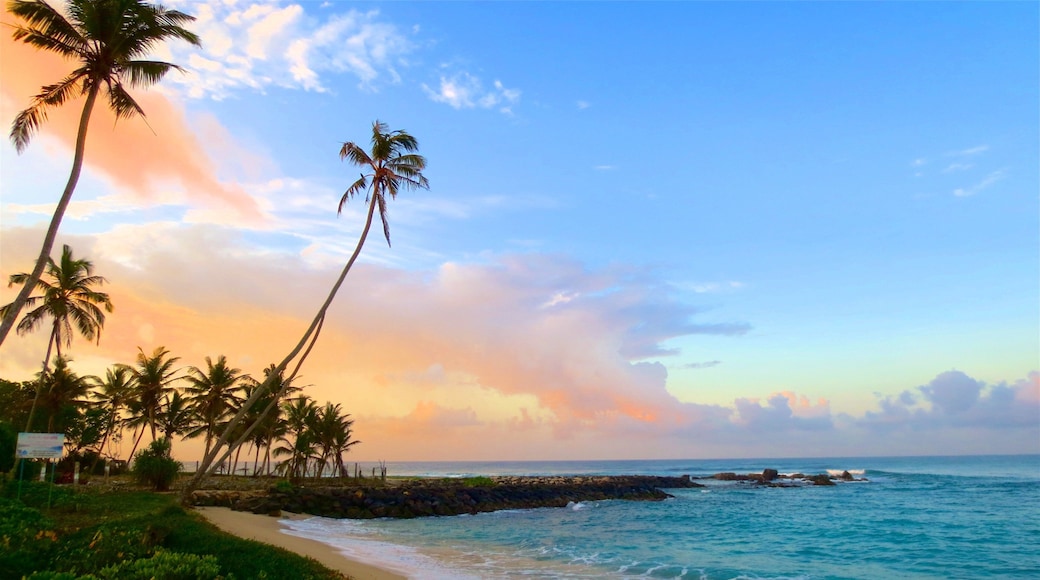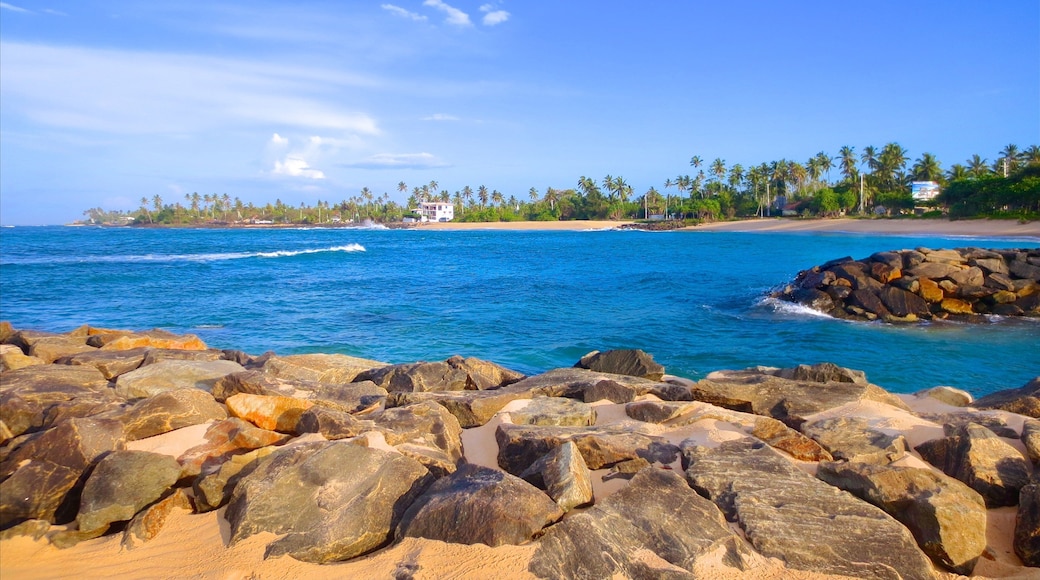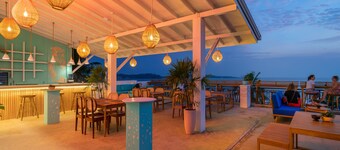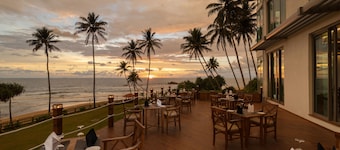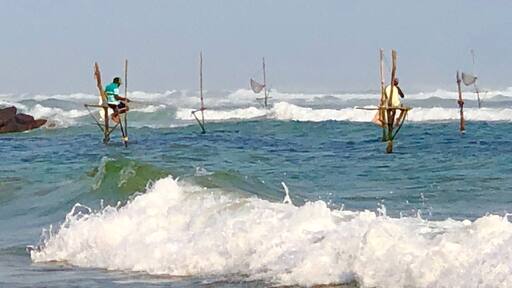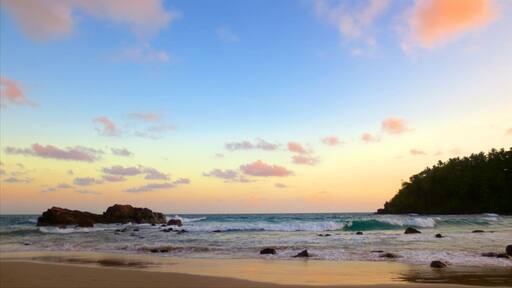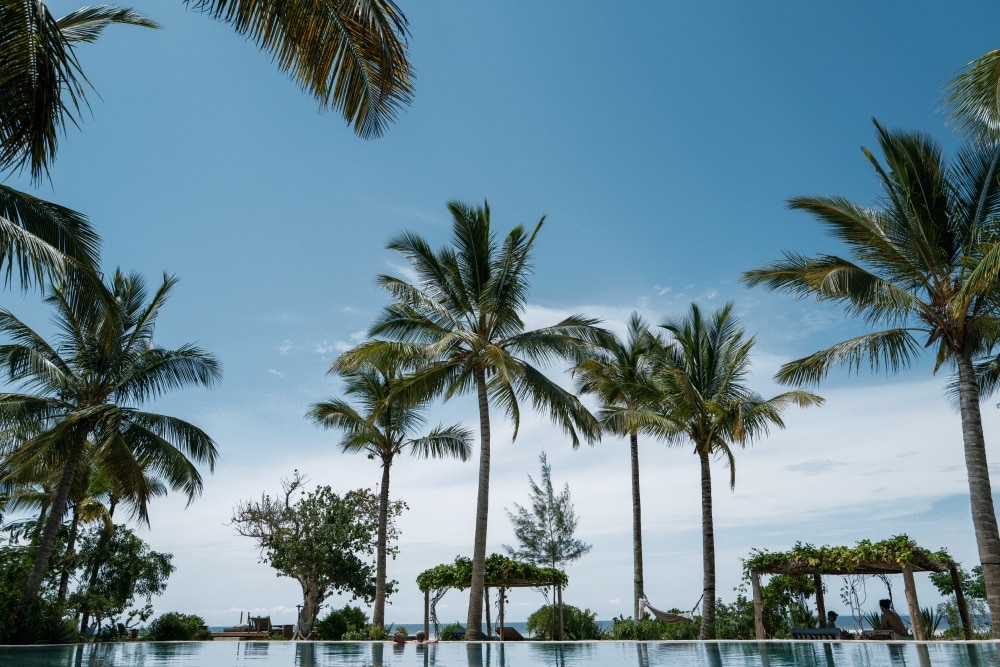Relax on the sandy beach and experience the laid-back charm of this fishing town, which is a good base for touring Sri Lanka’s glorious southern coastline.
Get away from busy tourist crowds and visit the less-traveled resort of Weligama. This low-key fishing town sits between the Polwatta Ganga stream and Weligama Bay, a horseshoe-shaped cove with craggy bluffs. The name Weligama means Sandy Village. The town’s recreational lifestyle revolves around the attractive Weligama Beach.
Spend your days enhancing your tan, swimming and overlooking the glistening Indian Ocean. Perfect your surfing ability in the relatively small waves. Rent equipment and arrange lessons at stands along the beach. Paddle out though the shallow water to Taprobane Island, where a luxury hotel sits inside a neo-Palladian mansion.
Stroll along the beach road and browse the displays of handicrafts and exotic fruits at the market stalls. Watch fishermen arrive on colorful boats with the day’s catch, which is often served at the town’s bars and restaurants. Visit religious landmarks such as Kapthurai Mosque.
Use local buses and rickshaws to reach attractions outside the town center. Take a tour of a working tea plantation at the Handunugoda Tea Museum. See original artifacts from the life of a well-known Sinhalese author at the Martin Wickramasinghe Folk Museum.
Pristine beaches lie within a short drive of Weligama. Travel west to Mihiripenna Beach and Unawatuna Beach. Hike up to the Japanese Peace Pagoda and secluded Jungle Beach. To the east is Mirissa Beach, popular for surfing and whale watching. Observe fishermen balancing precariously on wooden stilts at Polhena Beach.
Another interesting place to see is Matara. Its attractions include the 17th-century Star Fort and the Shrine of Our Lady church. Cross the bridge at Matara Beach to a headland and the Parevi Duwa Temple.
Get to Weligama easily via buses and trains that depart from ColomboOpens in a new window and many coastal towns. Guesthouses, homestays and luxury hotels provide accommodations to suit all travel budgets. Sri Lanka’s beaches are best between November and April when you can expect warm, dry days filled with sunshine.
